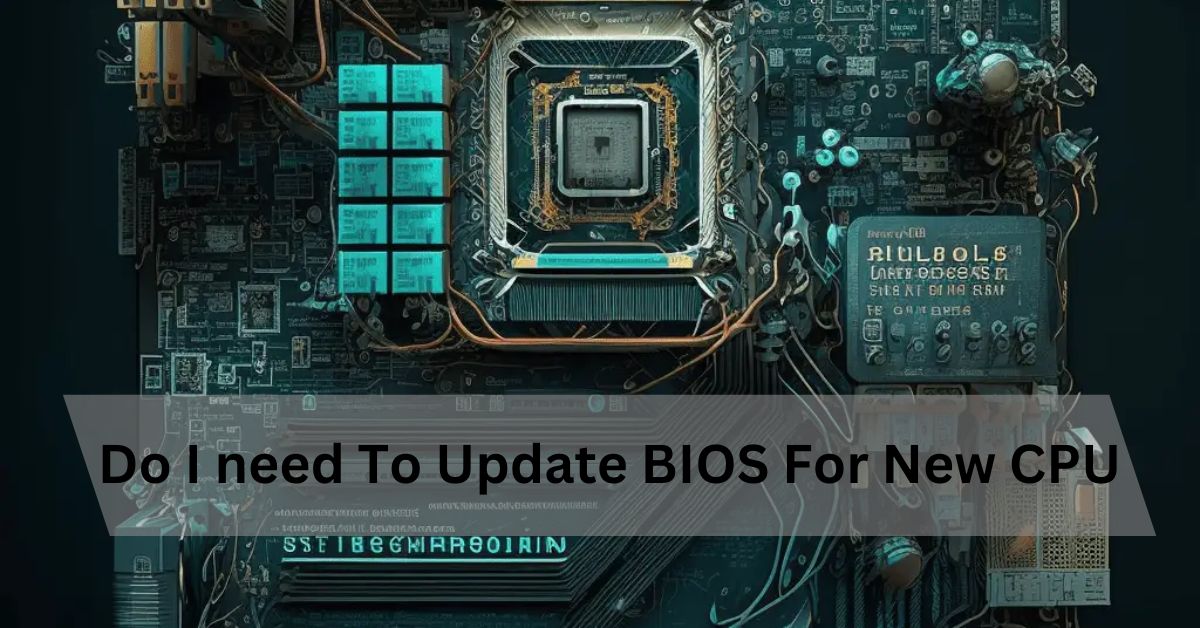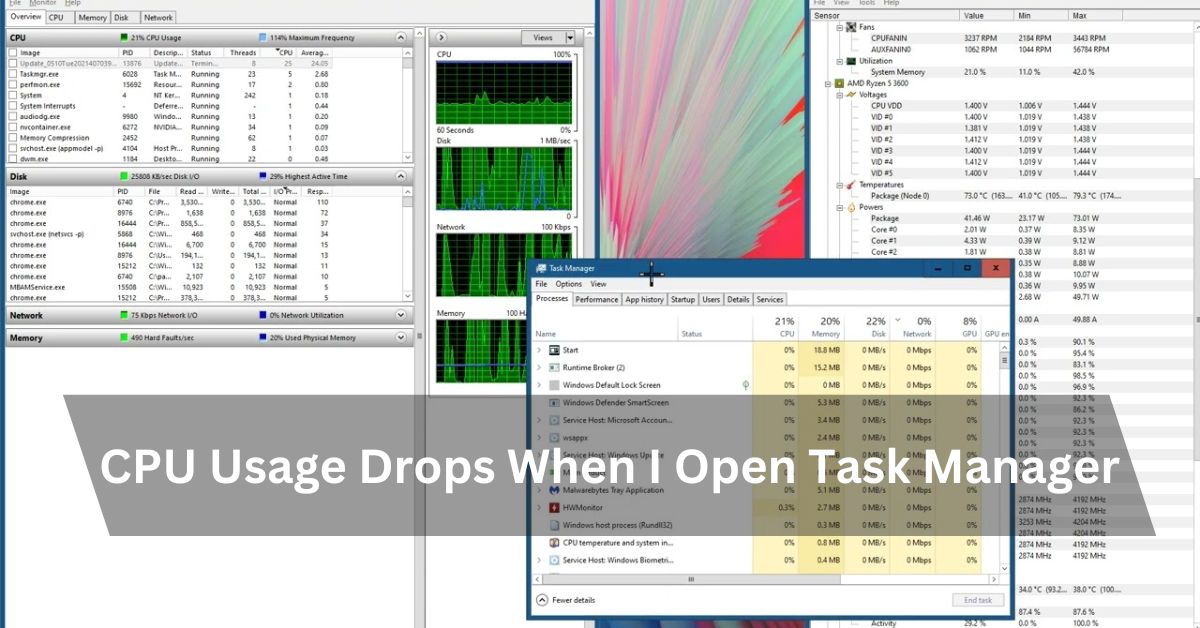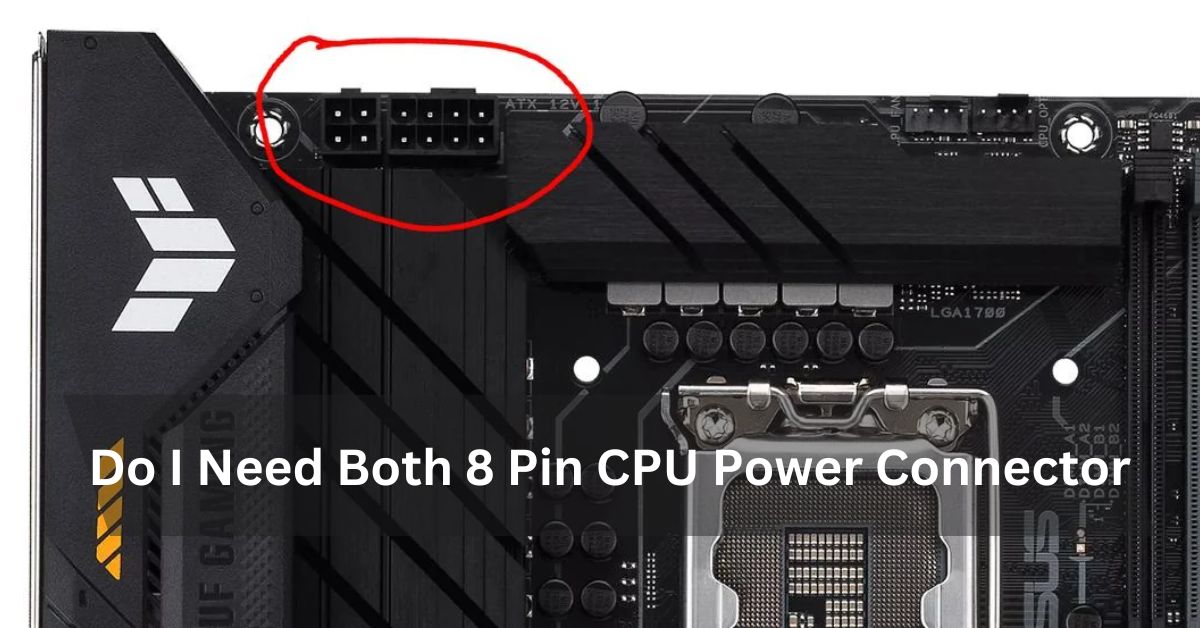However, one crucial question frequently arises during the excitement of installing a new CPU: Do I need to update my BIOS?
It is important to note that updating it is typically only required if the manufacturer advises otherwise or your BIOS is compatible with specific hardware.
In this article, we’ll investigate the significance of refreshing BIOS for another computer chip and guide you through the cycle.
Understanding Updates to BIOS:
System stability, compatibility, and performance are all enhanced by BIOS updates and essential software patches supplied by motherboard manufacturers. It is frequently necessary to update the BIOS when installing a new CPU on an existing motherboard to ensure proper functionality. That is especially important when upgrading to a newer CPU model or series the current BIOS version may not fully support.
Microcode updates and compatibility enhancements are typically included in BIOS updates to enable the motherboard to recognize and fully utilize the new CPU’s features. Compatibility issues, for example, the system not starting up or acting strangely, can arise if the BIOS for a new CPU. To ensure a smooth upgrade to a new CPU, check the motherboard manufacturer’s website for the most recent BIOS updates and carefully follow their instructions.
Issues with Compatibility:
1. CPU Recognition:
More established BIOS adaptations may need to perceive fresher computer processor models, prompting the framework to neglect or not recognize the computer chip through and through.
2. Highlight Backing:
New central processors frequently accompany progressed highlights and advances that require BIOS backing to work appropriately. These elements may be open with a viable BIOS rendition and work at diminished usefulness.
3. Microcode Updates:
BIOS refresh frequently incorporates microcode refreshes that provide similar improvements and advancements to explicit computer chip models.The CPU may not function optimally or experience stability issues without these updates.
4. Overclocking Assistance:
Overclocking features for newer CPU models may be updated BIOS versions. With the fitting BIOS update, clients will most likely be able to use overclocking abilities completely and may experience shakiness while endeavoring to overclock.
5. Security Patches:
Security patches are often included in BIOS updates to fix flaws or exploits that could slow down the CPU or compromise system security. The BIOS may be vulnerable to known security threats if not updated.
6. System Stability:
System instability, crashes, and unexpected behavior are all possible outcomes of CPU and BIOS incompatibility. Refreshing the BIOS guarantees similarity and upgrades in general framework soundness while utilizing another central processor.
7. Ideal Execution:
Updating the BIOS for a new CPU ensures that the system operates at its highest performance levels by providing the necessary optimizations and compatibility enhancements. With the appropriate BIOS update, clients might avoid shoddy execution or limits in central processor usefulness.
Also Read: Does Anyone Check Their CPU Temps?-A Complete Guide
How to Determine if a BIOS Update Is Required:
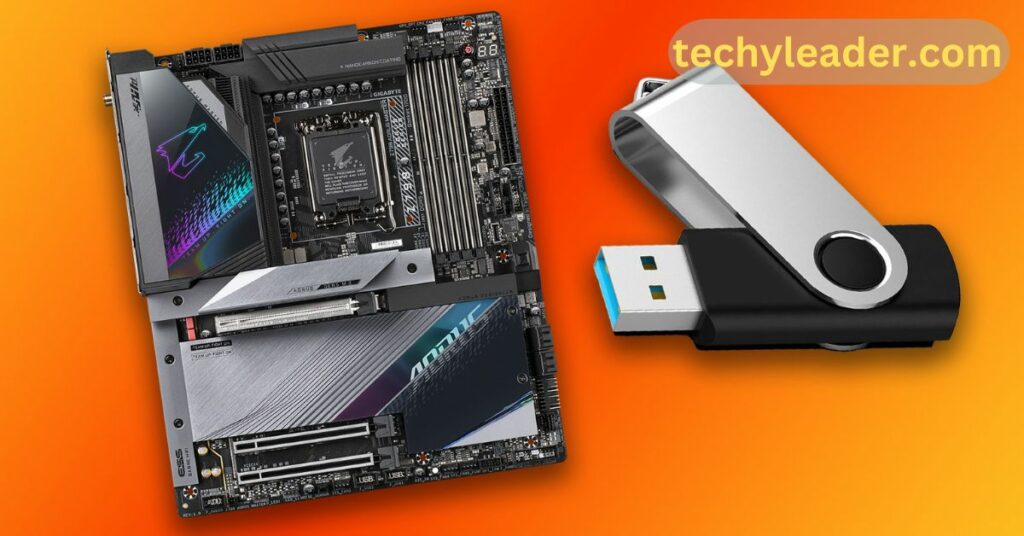
1. Check CPU Compatibility:
Confirm whether the ongoing BIOS rendition upholds the new central processor. For a list of CPUs compatible with each BIOS version, check the website or documentation provided by the motherboard manufacturer.
2. Audit BIOS Delivery Notes:
Check the delivery notes for the most recent BIOS reports on the maker’s site. Find out about CPU compatibility, enhancements to performance, bug fixes, and security patches.
3. Check the System’s Stability:
Consider whether a BIOS update may resolve system instability, crashes, or compatibility issues following the installation of the new CPU.
4. Investigate CPU-Specific Updates:
Find out if the new CPU needs specific BIOS updates to unlock certain features, make it more compatible, or fix problems that are already known to exist. A few computer processors might profit from microcode updates or improvements given by BIOS refreshes.
5. Consider Security Updates:
Check if the most recent BIOS version contains security patches to fix flaws that could slow down the CPU or compromise the system’s security. Moving up to a more current BIOS rendition might give added security insurance to the framework.
6. look at Maker Suggestions:
Counsel the motherboard maker’s proposals concerning BIOS refreshes for new central processors. A few producers might give explicit directions or devices to help decide the requirement for BIOS updates and securely play out the update interaction.
7. Compare risk to Benefit:
Think about the expected dangers and advantages of refreshing the BIOS. BIOS updates can improve compatibility and performance, but they also carry a small risk of system instability or failure if done incorrectly. In your particular circumstance, determine whether the potential benefits outweigh the risks.
Why is it essential to update the BIOS for a new CPU?
1. Compatibility Boost:
Producers discharge BIOS updates to add support for new equipment parts, including central processors. Updating the BIOS ensures that your motherboard is compatible with the most recent CPU models and works as intended.
2. Performance Enhancement:
Optimizations and bug fixes can boost system stability and performance in BIOS updates. You can maximize your new CPU and enjoy smoother operation if you keep your BIOS current.
3. Security Patches:
BIOS updates may include security patches to address vulnerabilities and safeguard your system from potential threats, just like software updates for your operating system or applications. Keeping your BIOS up to date helps protect your computer from security threats.
4. Feature Assistance:
New computer chips might accompany progressed elements or innovations that require related BIOS backing to work accurately. These features are fully supported and functional when the BIOS is updated.
Also Read: Test A CPU Without Thermal Paste-Complete Guide
Performing BIOS Update:
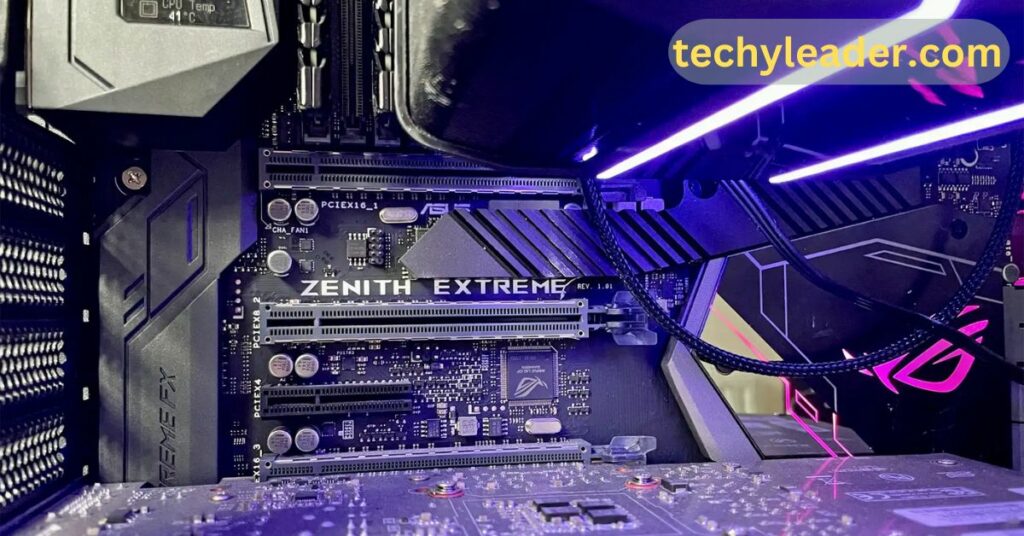
1. look at Current BIOS Adaptation:
To determine which version of the BIOS is on the motherboard, go to the BIOS/UEFI settings.
2. Download Most recent BIOS Rendition:
Download your motherboard model’s most recent BIOS update from the motherboard manufacturer’s website.
3. Create a USB drive that can boot:
Copy the BIOS update file to a USB drive formatted with FAT 32. If necessary, make sure A bootable USB drive is available.
4. Reinforcement Significant Information:
Before continuing with the update, back up significant information put away on the PC to forestall potential information misfortune in the event of a bombed update.
5. Setup the BIOS or UEFI:
Restart the PC and enter BIOS/UEFI settings by squeezing the assigned key during startup (e.g., F2, DEL, F10).
6. Start BIOS Update:
Choose to update the BIOS from the USB drive after finding the BIOS update utility in the BIOS/UEFI settings menu.
7. Follow the Instructions Displayed:
Follow the on-screen prompts to explore the BIOS update process. Please wait for the update to finish before confirming it.
8. Never interrupt the update:
During the BIOS update, ensure the computer stays powered on and uninterrupted. System failure or instability may result from interrupting the update.
9. Restart Framework:
Restart the computer to put the changes into effect after the BIOS update. Enter BIOS/UEFI settings again to confirm that the update was fruitful and that the new BIOS form has.
11. Stability testing the system:
After the BIOS update, test the system for stability and functionality to ensure it works as expected with the new CPU and BIOS version.
Also Read: Can You Use 70 Isopropyl Alcohol To Clean CPU?-Complete Guide
FAQ’s:
1. Should you update the BIOS before buying a new CPU?
Indeed, you’ll have to refresh your BIOS before introducing another computer processor. If your BIOS is outdated, a newer CPU may not function properly or be supported, rendering your computer unable to boot.
2. Reddit, do you need to update your BIOS for the new CPU?
A bio is necessary if you upgrade a CPU from a different generation.
3. Could you refresh BIOS with an old computer chip at any point?
It is possible, yes. Notwithstanding, after the update finishes, you should replace the old central processor with the enhanced one. Before redesigning, check the documentation on the current BIOS adaptation and its computer chip similarity list.
4. Is BIOS updating difficult?
Overhauling the BIOS in your PC doesn’t need to be confounded. However, a few prescribed procedures exist to make the cycle work without a hitch.
Conclusion:
In conclusion, updating the BIOS for a new CPU is essential to guarantee compatibility, stability, and security. You can update your BIOS safely and effectively and make the most of your upgraded system by following the steps in this article.
Make sure to download BIOS constantly refreshed from your motherboard producer’s authority site to avoid any dangers related to informal sources. Have fun coding!
